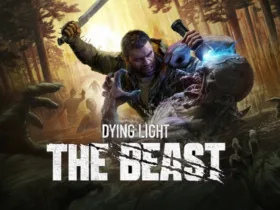Artificial Intelligence (AI) has been gradually shaping various industries, and the gaming sector is no exception. From automating mundane tasks to creating more immersive experiences, AI’s influence in the gaming industry is transformative and multi-faceted. This article will delve into five ways AI is redefining the paradigms of gaming.
How AI is Changing Game Development
AI has infiltrated game development processes in many ways. Its application is not just limited to enhancing gameplay but extends to developing smarter algorithms, optimizing workflows, and improving quality assurance. Let’s break down how AI is impacting the industry through these five significant areas.
#1 Personalized Gaming Experiences
Gone are the days when all players were treated equally by a one-size-fits-all algorithm. AI tools are so innovative that developers can now offer a much more personalized gaming experience. Machine learning algorithms analyze players’ behavior, preferences, and skill levels to adjust game variables in real-time.
- Adaptive Difficulty Levels
Games can now automatically adjust their difficulty levels to suit each player’s skills, ensuring that they are sufficiently challenged but not overwhelmed. Challenging games like Elden Ring would certainly benefit from this type of feature.
- Tailored Content
Personalized suggestions for in-game purchases or new quests are now based on the user’s gameplay history, making the suggestions far more relevant and engaging.
#2 AI-Generated Quests
Traditional quest designs often rely on pre-programmed scenarios, limiting variability and replayability. AI-generated quests, however, offer infinite possibilities by creating new challenges and storylines dynamically.
- Procedural Generation
AI can produce unique quests with variables like characters, objectives, and environments. This ensures that players always have something new to explore, even in older games. Just imagine how much more amazing RPGs like The Witcher 3 can be with this type of technology.
- Contextual Relevance
AI understands the storyline and player decisions to generate quests that are contextually relevant and fit within the narrative, thus improving immersion.
#3 Improved Q&A for Bug Fixing
Quality assurance in game development can be time-consuming and costly. AI automates the process of bug detection and even suggests fixes, thereby speeding up the Q&A process.
- Automated Testing
AI algorithms can run endless testing scenarios, simulating millions of user interactions to identify bugs and glitches far more quickly than human testers.
- Predictive Analytics
AI uses predictive analytics to forecast potential problem areas, allowing developers to address issues before they even occur.
#4 Smart NPCs (Non-Playable Characters)
The days of predictable and dumb NPCs are over. Thanks to AI, non-playable characters are smarter and more challenging, displaying behaviors that are almost indistinguishable from human players.
- Dynamic Behavior
NPCs can now adapt to player strategies, learn from player behavior, and even cooperate or compete in more complex ways.
- Emotional Intelligence
Advanced AI algorithms can simulate emotions for NPCs, making them react to in-game situations in a more human-like manner, thereby deepening player immersion.
#5 Faster Development Time
AI algorithms are excellent at automating repetitive tasks, from generating code to creating art assets. This speeds up the game development cycle and allows developers to focus on more creative aspects of the game.
- Auto-Coding
AI can now generate foundational code for basic game mechanics, saving developers hours of manual coding.
- Automated Art Creation
Tools powered by AI can assist in creating intricate 3D environments and character models, thereby reducing the workload on human designers.
Will AI Take Over the Industry?
While AI is transformative, it’s important to recognize that it serves as a tool to augment human creativity, not replace it. The human touch in storytelling, art, and emotional depth is something AI is still far from replicating.
Wrapping It Up
AI’s role in the gaming industry is neither fleeting nor superficial; it is foundational and transformative. As AI continues to evolve, the gaming industry is set to become more personalized, efficient, and engaging. It’s an exciting era, both for game developers and players, as we step into an increasingly interactive and immersive gaming universe, thanks to the advancements in AI.
And there you have it, five key ways AI is changing the game—quite literally.














Leave a Reply